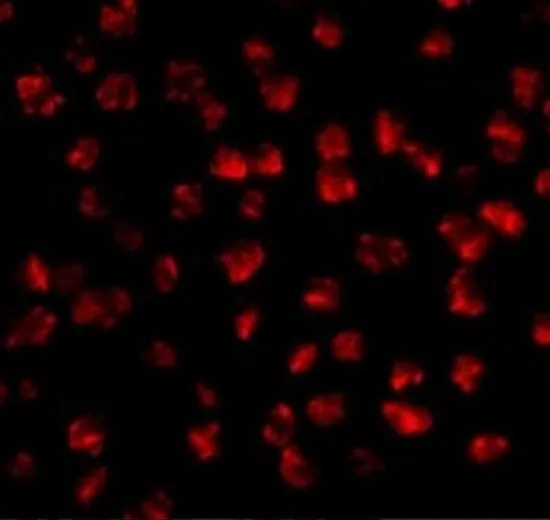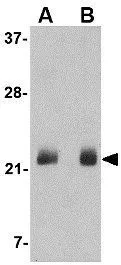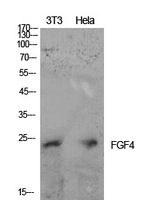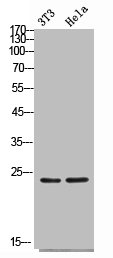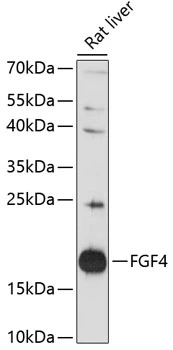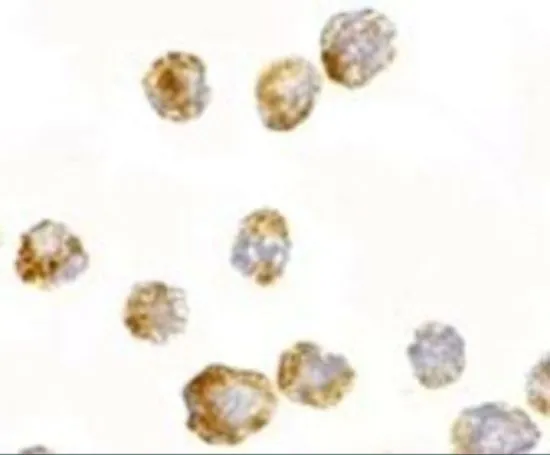
ICC/IF analysis of 3T3 cells using GTX85040 FGF4 antibody. Working concentration : 2.5 μg/ml
FGF4 antibody
GTX85040
ApplicationsImmunoFluorescence, Western Blot, ELISA, ImmunoCytoChemistry
Product group Antibodies
ReactivityHuman, Mouse
TargetFGF4
Overview
- SupplierGeneTex
- Product NameFGF4 antibody
- Delivery Days Customer9
- Application Supplier NoteWB: 0.5 - 1 microg/mL. ICC/IF: 2.5 microg/mL. *Optimal dilutions/concentrations should be determined by the researcher.Not tested in other applications.
- ApplicationsImmunoFluorescence, Western Blot, ELISA, ImmunoCytoChemistry
- CertificationResearch Use Only
- ClonalityPolyclonal
- Concentration1 mg/ml
- ConjugateUnconjugated
- Gene ID2249
- Target nameFGF4
- Target descriptionfibroblast growth factor 4
- Target synonymsFGF-4, HBGF-4, HST, HST-1, HSTF-1, HSTF1, K-FGF, KFGF, SRTD22, fibroblast growth factor 4, heparin secretory transforming protein 1, heparin-binding growth factor 4, human stomach cancer, transforming factor from FGF-related oncogene, kaposi sarcoma oncogene, oncogene HST, transforming protein KS3
- HostRabbit
- IsotypeIgG
- Protein IDP08620
- Protein NameFibroblast growth factor 4
- Scientific DescriptionFibroblast growth factor 4 (FGF4) is a member of the fibroblast growth factor (FGF) family that possess broad mitogenic and cell survival activities and play key roles in growth and survival of stem cells during embryogenesis, tissue regeneration, and carcinogenesis. FGF4 was identified by its strong oncogenic transforming activity and is a potent angiogenic factor, expressed in several highly vascularized tumors and also in adult mouse testis, intestine, and brain. Studies on the mouse homolog suggests a function in bone morphogenesis and limb development through the sonic hedgehog (SHH) signaling pathway. Furthermore, FGF4 regulates neural progenitor cell proliferation and neuronal differentiation. Recent studies show a growth-promoting role for FGF4 in human embryonic stem cells and a putative feedback inhibition mechanism by a novel FGF4 splice isoform that may serve to promote differentiation at a later stages of development.
- ReactivityHuman, Mouse
- Storage Instruction-20°C or -80°C,2°C to 8°C
- UNSPSC41116161

